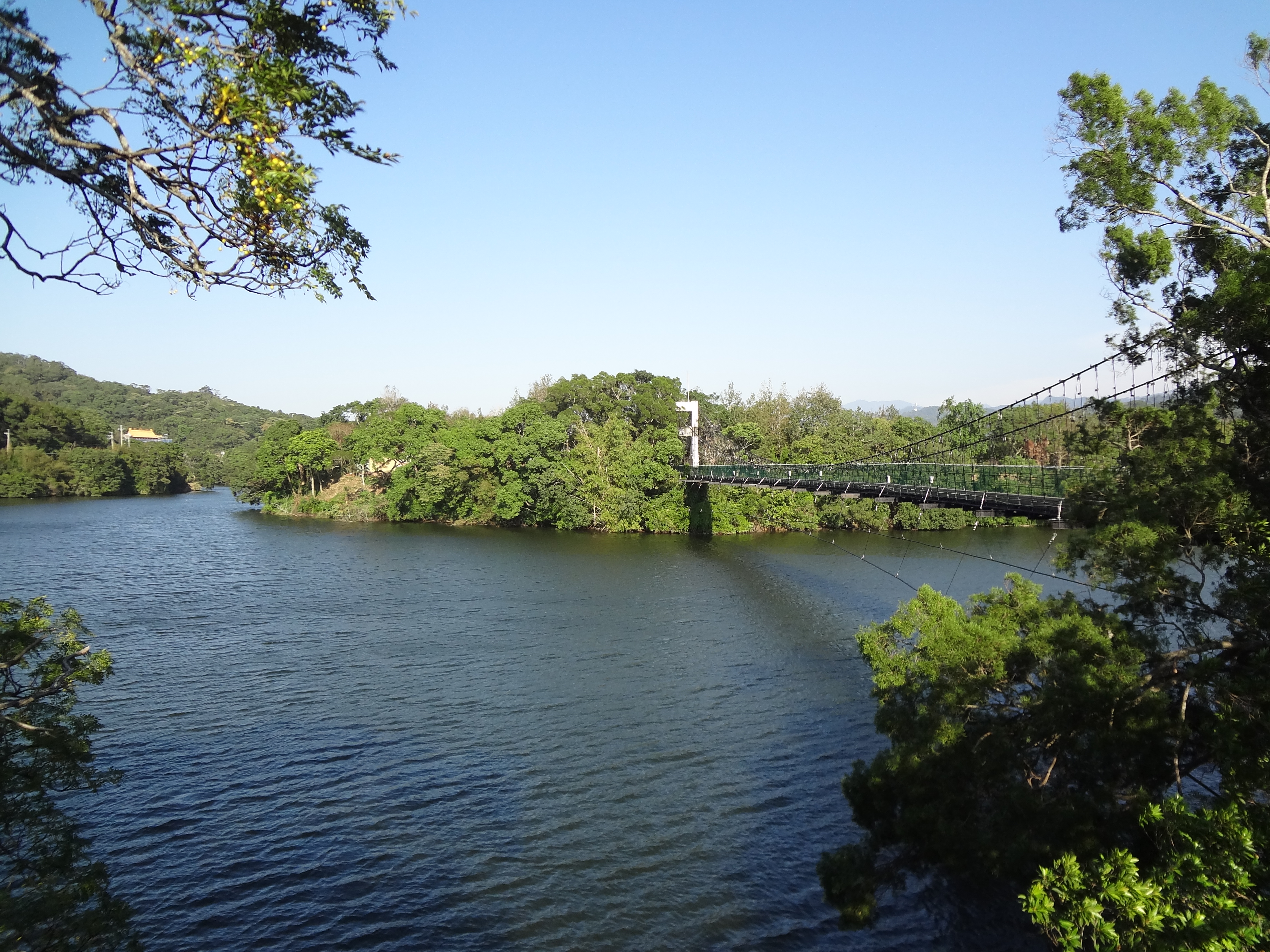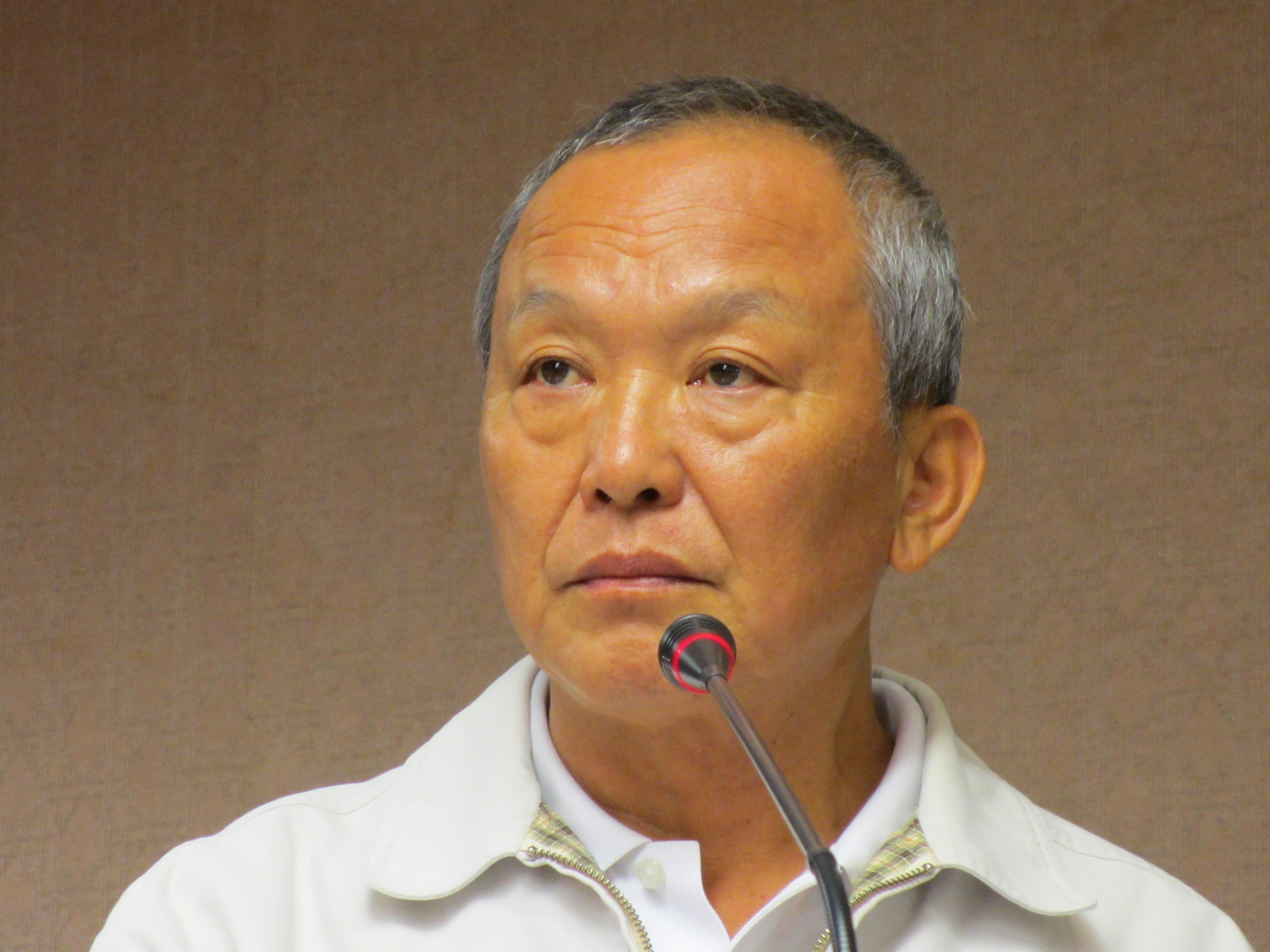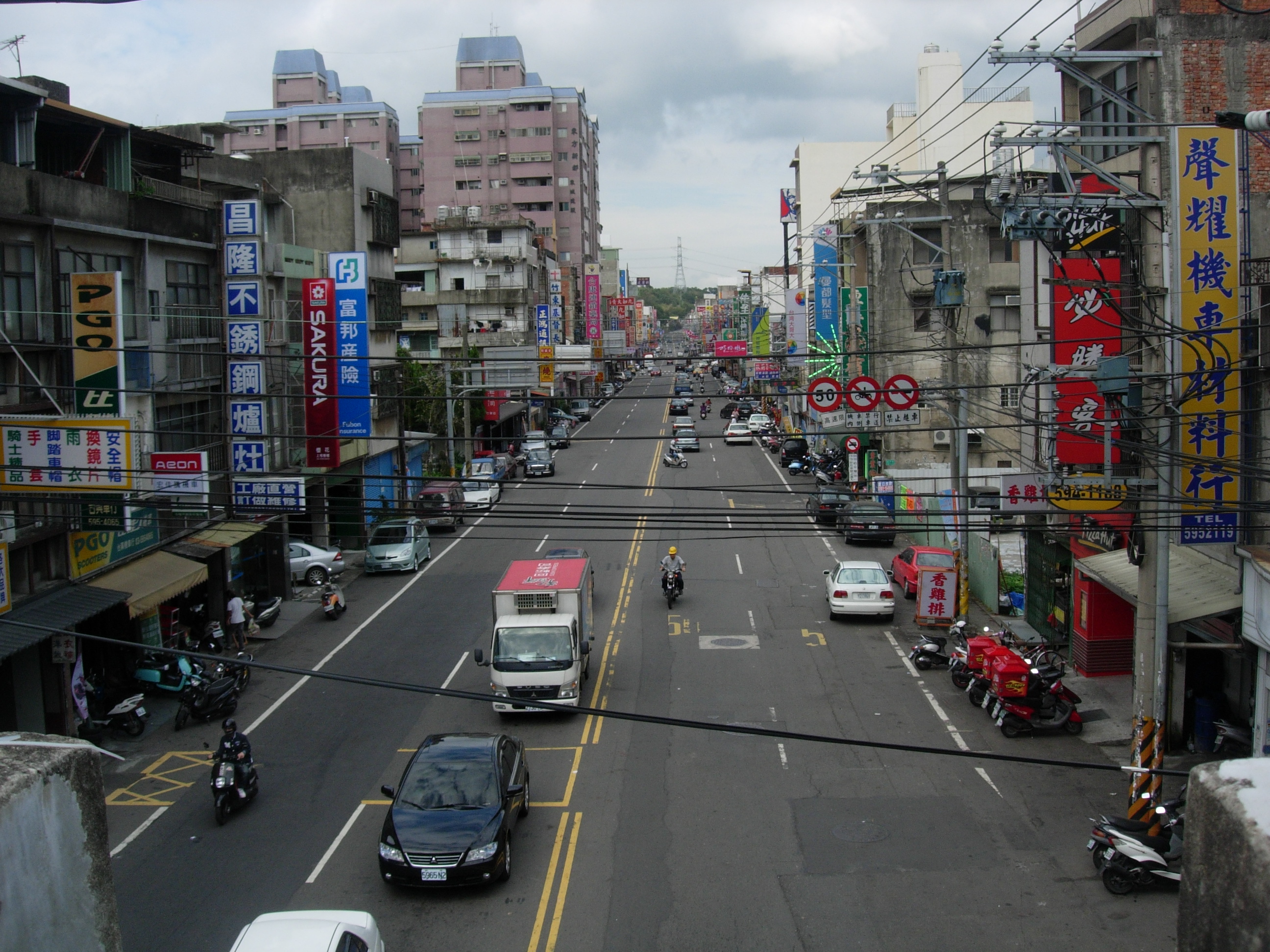|
Touwu
Touwu Township is a rural township in north-western Miaoli County, Taiwan. Geography *Area: *Population: 9,941 (January 2023) Administrative divisions The township comprises eight villages: Beikeng, Feifeng, Mingde, Mingfeng, Qudong, Shitan, Touwu and Xiangshan. Politics The township is part of Miaoli County Constituency II electoral district for Legislative Yuan. Tourist attractions * Guanyin Temple * Mingde Reservoir behind Mingde Dam * Rihsin Island Notable natives * Chang Chiu-hua, Magistrate of Miaoli County (1989–1993) * Rai Hau-min, President of Judicial Yuan The Judicial Yuan () is the judicial branch of the government of the Republic of China on Taiwan.''See'' Constitution arts. 77-82, ''available at'' ''See'' Additional Articles of the Constitution art. 5, ''available at'' It runs a Constitution ... (2010–2016) References External links * {{Townships in Taiwan Townships in Miaoli County ... [...More Info...] [...Related Items...] OR: [Wikipedia] [Google] [Baidu] |
Mingde Dam
Mingde Dam () is a rockfill dam across the Laotianliao River in central Touwu Township, Miaoli County, Taiwan. The Mingde Reservoir ( ''Míngdé Shuǐkù'') behind the dam serves mainly for irrigation and municipal water supply for Miaoli City. The dam consists of a main embankment high and long, holding back a reservoir with a capacity of 17.1 million cubic metres (14,350 acre feet). The dam and reservoir control runoff from a catchment area of . A spillway located to the north of the main dam consists of a six-bay gated overflow section, with a release capacity of . History The dam was built in 1966–1970. See also *List of dams and reservoirs in Taiwan This is a partial listing of dams and reservoirs in Taiwan (Republic of China). List of dams and reservoirs See also * List of power stations in Taiwan References * Reservoirs, dams and weirs of Taiwan(Taiwan Water Resources Agency ... References 1970 establishments in Taiwan Dams completed in 197 ... [...More Info...] [...Related Items...] OR: [Wikipedia] [Google] [Baidu] |
Miaoli County
Miaoli County (Mandarin Pinyin: ''miáo lì xiàn''; Hakka PFS: ''Mèu-li̍t-yen''; Hokkien POJ: ''Biâu-le̍k-koān'' or ''Miâu-le̍k-koān'') is a county in western Taiwan. Miaoli is adjacent with Hsinchu County and Hsinchu City to the north, Taichung to the south, and borders the Taiwan Strait to the west. Miaoli is classified as a county in central Taiwan by the National Development Council, while the Taiwan Central Weather Bureau classifies Miaoli as a county in northern Taiwan. Miaoli City is the capital of the county, and is also known as "Mountain Town", owing to the number of mountains nearby, making it a destination for hiking. Name The name ''Miaoli'' was coined by matching Hakka Chinese sound for the characters 貓貍 to the phonetically approximate ''Pali'' (''Bari'') from the Taokas language. The resulting word () is a widespread but non-orthodox variant referring to Viverridae. In 1889, during late Qing rule, the name was modified from various forms () to its ... [...More Info...] [...Related Items...] OR: [Wikipedia] [Google] [Baidu] |
Township (Taiwan)
Townships are the third-level administrative subdivisions of counties of the Republic of China (Taiwan), along with county-administered cities. After World War II, the townships were established from the following conversions on the Japanese administrative divisions: Although local laws do not enforce strict standards for classifying them, generally urban townships have a larger population and more business and industry than rural townships, but not to the extent of county-administered cities. Under townships, there is still the village as the fourth or basic level of administration. As of 2022, there are totally 184 townships, including 38 urban townships, 122 rural townships and 24 mountain indigenous townships. 174 townships with 35 urban and 118 rural townships are located in Taiwan Province and 10 townships with 3 urban and 4 rural townships are located in Fujian Province. Penghu and Lienchiang are the only two counties that do not have urban townships. Statistics of ... [...More Info...] [...Related Items...] OR: [Wikipedia] [Google] [Baidu] |
Township (Taiwan)
Townships are the third-level administrative subdivisions of counties of the Republic of China (Taiwan), along with county-administered cities. After World War II, the townships were established from the following conversions on the Japanese administrative divisions: Although local laws do not enforce strict standards for classifying them, generally urban townships have a larger population and more business and industry than rural townships, but not to the extent of county-administered cities. Under townships, there is still the village as the fourth or basic level of administration. As of 2022, there are totally 184 townships, including 38 urban townships, 122 rural townships and 24 mountain indigenous townships. 174 townships with 35 urban and 118 rural townships are located in Taiwan Province and 10 townships with 3 urban and 4 rural townships are located in Fujian Province. Penghu and Lienchiang are the only two counties that do not have urban townships. Statistics of ... [...More Info...] [...Related Items...] OR: [Wikipedia] [Google] [Baidu] |
Legislative Yuan Constituencies In Miaoli County
Miaoli County legislative districts () consist of 2 single-member constituencies, each represented by a member of the Republic of China Legislative Yuan. Current districts *Miaoli County Constituency 1 - Houlong, Sanyi, Tongluo, Tongxiao, Yuanli, Zaoqiao, Zhunan Townships *Miaoli County Constituency 2 - Miaoli City, Toufen City, Dahu, Gongguan, Nanzhuang, Sanwan, Shitan, Touwu, Tai'an Tai'an () is a prefecture-level city in Western Shandong Province of the People's Republic of China. Centered on Mount Tai, the city borders the provincial capital of Jinan to the north, Zibo to the east, Linyi to the southeast, Liaocheng to ..., Zhuolan Townships Legislators Li Yi-ting was removed from office due to election fraud. Hsu Yao-chang resigned in 2014 after his election as Miaoli County magistrate. Election results References {{Legislative Yuan seats by electoral method navbar Constituencies in Taiwan Miaoli County ... [...More Info...] [...Related Items...] OR: [Wikipedia] [Google] [Baidu] |
Chang Chiu-hua
Chang Chiu-hua (; 1937–2020) was a Taiwanese politician. He was head of government in Miaoli Township and Miaoli City, then served a single four-year term as magistrate of Miaoli County. Life and career Chang was born in Tō'oku, Byōritsu, Shinchiku Prefecture of Japanese Taiwan in 1937, which later became known as Touwu. He graduated from what became National Taipei University, and was later named one of the school's distinguished alumni. Chang was a schoolteacher prior to his election as mayor of Miaoli Township under the Kuomintang banner in 1973. He oversaw the municipal government through its reclassification as the county-controlled Miaoli City in 1981, and stepped down in 1982. Chang subsequently served on the second convocation of the Miaoli County Council, then as magistrate of Miaoli County between 1989 and 1993.何來美,《劉黃風雲》,pages 441–445 Chang lost reelection to the magistracy in 1993 to political independent . Chang was diagnosed with liver ... [...More Info...] [...Related Items...] OR: [Wikipedia] [Google] [Baidu] |
Rai Hau-min
Rai Hau-min (; born 2 January 1939) in Tō'oku Village, Shinchiku Prefecture, Japanese Taiwan, was the President of the Judicial Yuan of the Republic of China from 2010 to 2016. An attorney by profession, Rai founded the Formosa Transnational Attorney at Law () in 1974, and served as the Chairperson of the Central Election Commission of the Republic of China from 4 November 2009 to 12 October 2010 before his appointment as President of the Judicial Yuan. Education Rai obtained his bachelor's and master's degrees in law from National Taiwan University and University of Tokyo in Japan, respectively. Honors * Grand Cordon of the Order of the Rising Sun, 2017 See also * Politics of Taiwan The Republic of China (Chinese: 中華民國政治, Pinyin: ''Zhōnghuá Mínguó de zhèngzhì'') (commonly known as Taiwan) is governed in a framework of a representative democratic republic under a Five-Power system envisioned by Sun ... References External links The Honorabl ... [...More Info...] [...Related Items...] OR: [Wikipedia] [Google] [Baidu] |
Taiwan
Taiwan, officially the Republic of China (ROC), is a country in East Asia, at the junction of the East and South China Seas in the northwestern Pacific Ocean, with the People's Republic of China (PRC) to the northwest, Japan to the northeast, and the Philippines to the south. The territories controlled by the ROC consist of 168 islands, with a combined area of . The main island of Taiwan, also known as ''Formosa'', has an area of , with mountain ranges dominating the eastern two-thirds and plains in the western third, where its highly urbanised population is concentrated. The capital, Taipei, forms along with New Taipei City and Keelung the largest metropolitan area of Taiwan. Other major cities include Taoyuan, Taichung, Tainan, and Kaohsiung. With around 23.9 million inhabitants, Taiwan is among the most densely populated countries in the world. Taiwan has been settled for at least 25,000 years. Ancestors of Taiwanese indigenous peoples settled the isla ... [...More Info...] [...Related Items...] OR: [Wikipedia] [Google] [Baidu] |
Minguo Calendar
The Republic of China calendar, often shortened to the ROC calendar or the ''Minguo'' calendar, is a calendar used in Taiwan, Penghu, Kinmen, and Matsu. The calendar uses 1912, the year of the establishment of the Republic of China (ROC), as the first year. The ROC calendar follows the tradition of using the sovereign's era name and year of reign, as did previous Chinese dynasties. Months and days are numbered according to the Gregorian calendar. The ROC calendar has been in wide use in the ROC since 1912, including in early official documents. The ROC calendar is the official calendar used in Taiwan and Penghu since 1945, and also adopted by Overseas Chinese and Taiwanese communities. Chorographies and historical research published in mainland China covering the period between 1912 and 1949 also use the ROC calendar. Calendar details The Gregorian calendar was adopted by the nascent Republic of China effective 1 January 1912 for official business, but the general popula ... [...More Info...] [...Related Items...] OR: [Wikipedia] [Google] [Baidu] |
Electoral District
An electoral district, also known as an election district, legislative district, voting district, constituency, riding, ward, division, or (election) precinct is a subdivision of a larger state (a country, administrative region, or other polity) created to provide its population with representation in the larger state's legislative body. That body, or the state's constitution or a body established for that purpose, determines each district's boundaries and whether each will be represented by a single member or multiple members. Generally, only voters (''constituents'') who reside within the district are permitted to vote in an election held there. District representatives may be elected by a first-past-the-post system, a proportional representative system, or another voting method. They may be selected by a direct election under universal suffrage, an indirect election, or another form of suffrage. Terminology The names for electoral districts vary across countries and, oc ... [...More Info...] [...Related Items...] OR: [Wikipedia] [Google] [Baidu] |
Legislative Yuan
The Legislative Yuan is the unicameral legislature of the Republic of China (Taiwan) located in Taipei. The Legislative Yuan is composed of 113 members, who are directly elected for 4-year terms by people of the Taiwan Area through a parallel voting system. Originally located in Nanking, the Legislative Yuan, along with the National Assembly (electoral college) and the Control Yuan (upper house), formed the tricameral parliament under the original 1947 Constitution. The Legislative Yuan previously had 759 members representing each constituencies of all provinces, municipalities, Tibet, Outer Mongolia and various professions. Until democratization, the Republic of China was an authoritarian state under Dang Guo, the Legislative Yuan had alternatively been characterized as a rubber stamp for the then-ruling regime of the Kuomintang. Like parliaments or congresses of other countries, the Legislative Yuan is responsible for the passage of legislation, which is then sent to the ... [...More Info...] [...Related Items...] OR: [Wikipedia] [Google] [Baidu] |
Guanyin Temple
Guanyin () is a Bodhisattva associated with compassion. She is the East Asian representation of Avalokiteśvara ( sa, अवलोकितेश्वर) and has been adopted by other Eastern religions, including Chinese folk religion. She was first given the appellation of "Goddess of Mercy" or "Mercy Goddess" by Jesuit missionaries in China. Guanyin is short for Guanshiyin, which means " he One WhoPerceives the Sounds of the World." On the 19th day of the sixth lunar month, Guanyin's attainment of Buddhahood is celebrated. Some Buddhists believe that when one of their adherents departs from this world, they are placed by Guanyin in the heart of a lotus, and then sent to the western pure land of Sukhāvatī. Guanyin is often referred to as the "most widely beloved Buddhist Divinity" with miraculous powers to assist all those who pray to her, as is mentioned in the ''Pumen chapter'' of ''Lotus Sutra'' and ''Kāraṇḍavyūha Sūtra''. Several large temples in East Asia are ... [...More Info...] [...Related Items...] OR: [Wikipedia] [Google] [Baidu] |




_in_Nanjing%2C_Nov_2017.jpg)
